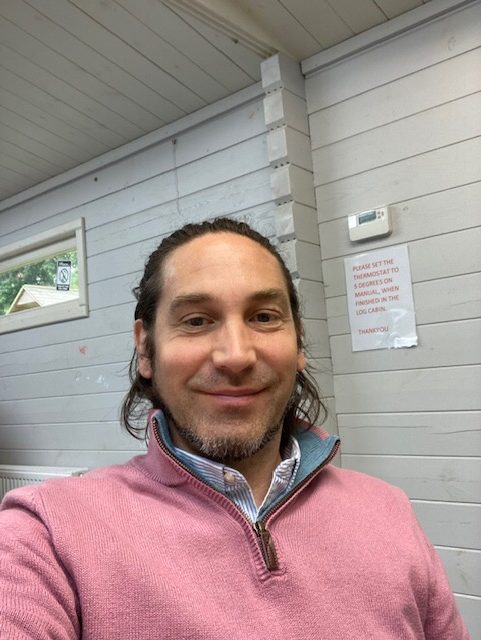Dan Holdsworth, Senior Practitioner at Clover Lodge provides Theraplay for children who we feel would benefit from this and which they attend with a secure attachment figure from the staff team within the home. Dan is trained in Theraplay levels 1 and 2 and is currently working through the intermediate level qualification. He is regularly supervised by a member of the Theraplay institute. Dan is also trained in DDP Levels 1 and 2. If you have any further queries, please contact Dan direct on dan.holdsworth@cloverchildcareservices.co.uk

At Clover Child Care Services, Theraplay is an important part of our core objective to therapeutically re-parent our children. It is a pioneering application of attachment theory to clinical work with children and their parents. Since our children are living in our residential settings of either Clover Lodge, The Old Rectory and Oxcroft, the child’s parent figure is selected carefully but will usually be someone who has developed a significant relationship with the child such as their key-worker who cares for them within the home.
Theraplay was first developed by Ann M. Jernberg and Phyllis B. Booth who taught together at the University of Chicago Nursery School 1949-50. They collaborated in their development of the Theraplay model under the the Head Start programmes which involved working with many deprived families in the late 1960s living around the Chicago area of United States of America. Due to their success, The Theraplay Institute was created in 1969 where Jernberg became clinical director; and since then it has grown all over the world helping parents/parent-figures to develop their skills of providing playful, engaging, empathic responsiveness, and clear guidance that can lead to a secure attachment and stable mental health.
At Clover Child Care the Theraplay process will require a commitment from a key worker selected, to undertake an intake interview to further discuss the model and the four dimensions used; Structure, Challenge, Engagement and Nurture. Theraplay is concerned with developing the preverbal interactions between parent and child, it helps children from traumatic backgrounds and those with attachment disorders to develop their ability to have positive reciprocal interactions and learn the fundamental skills of relationship building which will serve them well in their foster placements and later in their adult relationships. The selected key worker will be asked questions relating to their own childhood and attachment style and this is important to understand and reflect upon during the process. The goal is to recreate moments of primary intersubjectivity which are closely related to the attunement between a mother and a newborn baby and which are often missed developmental opportunities for children in the care system which underpin the nature of their difficulties. The (Marschak Interview Method) MIM assessment is the first part of the therapeutic work which involves the child and an essential part of the process where key-worker and child are observed through a series of activities to gain an insight into how the key-worker manages the four dimensions. A MIM feedback session will be completed with the key-worker and theraplay practitioner and a collaborative partnership is formed where the video recording of the MIM observations are observed and analysed. The key worker is invited to reflect with the practitioner about the observation and together they will form a plan moving forward with achievable goals to be reached within the process. There will be regular feedback sessions and each session plan will be discussed with the key worker and their views are sought, reflected upon and valued. A useful outcome byproduct of this therapeutic intervention is that child care practitioners become more reflective, self-aware and therefore skilled in their engagement with our young people.
Theraplay and its principles lends itself nicely to the way we respond to our children at Clover Child Care and our commitment to using Dyadic Development Psychotherapy (DDP) developed by Daniel A. Hughes.=Relational intervention-
In our commitment to promoting healthier attachments with our children, we have invested heavily by providing all staff members with DDP training to level 2 standard and this has enabled us to work more effectively with them using PACE Playfulness, Acceptance, Curiosity and Empathy in all our interactions with them.
In 2015 the first cohort completed DDP training level 1 under Kim S. Golding,. She realised the importance of the work we were doing and developed the principles of DDP into a residential care practice which we call DDP practice.
For many of the children who arrive in their placement with us, they are unable to articulate their previous traumatic experiences and this often displays itself through unhelpful behaviours which mean that the use of PACE is an ideal tool for reflecting with the child and working in a collaborative way to understand them and give them a coherent narrative about their lives.
Initially we assess each child when they enter their placement; Dr Ben Gurney Smith will complete these assessments and will identify which clinical process will best suit the individual.